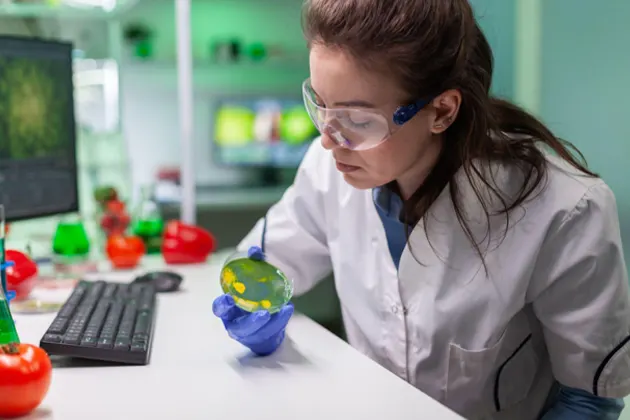Biotechnology, as a combination of biology with technology, is transforming many industries very rapidly. In this process, the biggest beneficiary has been the healthcare and medical sectors. The future of medicine is indeed on the road to precision, personalization of treatment, and innovative therapeutic strategies with this revolution at the junction of science and technology. Not only are these innovations contributing toward new drugs and novel disease treatment methods but they are also helping understand human biology and the mechanisms behind diseases, further setting a precedent for new ideas in health management.
This blog is a review of how biotechnology is setting up the future of medicine, changing its paradigm, and creating paths to some path-breaking innovation in health care.
Precision Medicine for Customized Treatment for Individuals
Perhaps the greatest impact biotechnology has made on medicine has been in developing a concept that is termed precision medicine. The approach used by conventional medical treatment, whereby everyone is alike, now becomes much more effective for individuals who have certain genetic profiles. Biotechnology has allowed for treatments tailored to a particular individual’s genetic makeup, environment, and lifestyle.
Precision medicine is also changing the way treatment for cancer works. Biotechnological advancements have made it possible to create targeted cancer therapies wherein targeting the particular molecular target on cancer cells can be done rather than treating the entire body. Immunotherapies, where the immune system of the body is enhanced to combat cancer, is a direct result of biotechnology research, which has now been able to treat cancers that were very difficult to treat some time before.
The Power of CRISPR and Beyond with Gene Editing
Gene editing is the most exciting area in biotechnology; it lets researchers make exact targeted changes in the DNA by methods such as CRISPR. This opens opportunities for a possible cure to many genetic diseases and enhances crops that can create better future food security for us. This is also considered the first preventive tool against certain kinds of cancer.
In medicine, the gene editing field has the opportunity to correct those genetic mutations leading to various hereditary diseases and conditions, among them cystic fibrosis, sickle cell anemia, and muscular dystrophy. Scientists have been enabled by CRISPR and similar gene-editing tools to establish potential therapies designed to eliminate or modify faulty genes responsible for the diseases.
Stem Cell Therapy: Regenerating Damaged Tissues
A long time ago, one of the most promising aspects of biotechnology in medicine, which is doing great, was stem cells themselves. Stem cells can develop into any type of cell, that’s why this candidate is extremely ideal for damaged tissue repair and replacement. Probably, stem cell therapy will provide treatment against such conditions as spinal cord injury, heart failure, Parkinson’s disease, and even against some types of blindness.
Biotechnology has made it possible to create stem cell-based treatments, and there are already applications today. For example, clinical trials for the use of stem cell therapy in regenerating heart tissue after a heart attack, or in cases of degenerative diseases like macular degeneration are being conducted. The possibility of creating specialized tissues from stem cells in both a laboratory setting or even directly within a patient could be the birth of truly revolutionary treatments previously considered impossible to treat.
Additionally, as stem cell therapies advance, it is essential to ensure patient safety and regulatory compliance, where SFDA pharmacovigilance, in Saudi Arabia plays a key role in monitoring and assessing the safety of these emerging therapies.
Antibiotic Resistance with Biotech on the Front
The greatest threat to global health is antibiotic resistance because of over and inappropriate use of antibiotics causing resistant bacteria. Therefore, most of the available antibiotics are now ineffective. In this regard, biotechnology has been helpful in discovering new classes of antibiotics and alternative therapies to fight antibiotic resistance.
In present times, biotechnological drugs are being attempted with phage therapy, which is the usage of bacteriophages to kill bacteria and antimicrobial peptides, a novel approach that may treat infections attributed to resistant bacteria. In addition, biotechnology is also utilized in producing more potent variants of the antibiotics already in use against resistant strains.
Conclusion
The future of medicine is linked with the developments of biotechnology. Gene editing and stem cell therapy, precision medicine, and biopharmaceuticals are emerging in a new paradigm for healthcare provision. Because such technologies are bound to grow, developing new methods for disease treatment, personalized treatment, and, ultimately, better patient outcomes will be stronger.
Biotechnology continues to touch everything that will shape the future of medicine. Changing its course toward a more holistic understanding of patient care, this dynamic field is promising to revolutionize the understanding, diagnosis, and treatment of diseases, making it one of the most exciting today.









